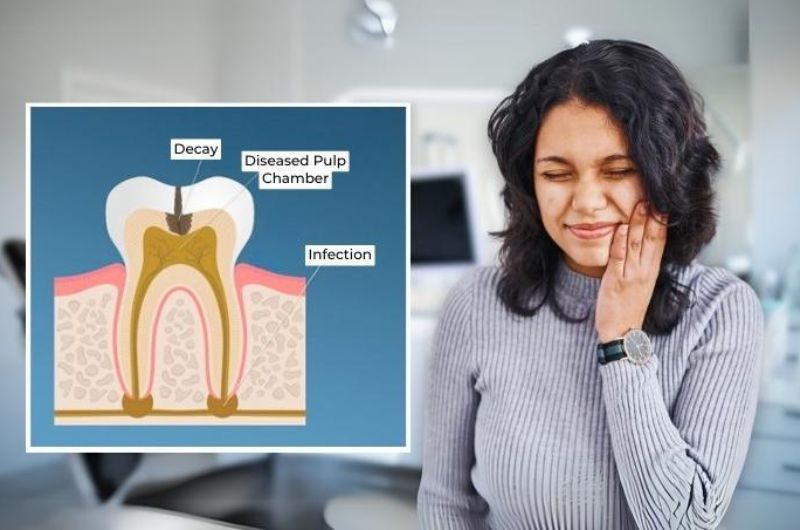
Root Canal Treatment In Chandkheda
One of the most common and ignored dental problems is cavities. These are often ignored to the point that they cause pain and infection, requiring root canal treatment. At Dantbatrisa, our expert dentists Dr Kavan Shah and Dr Stuti Shah, are known for their expertise in providing painless root canal treatment in Chandkheda Ahmedabad making the process pain free and comfortable.
Understanding Root Canal Treatment
What is a Root Canal?
When the center of the tooth, called the pulp, is infected due to extreme cavities, it causes oral pain and discomfort. This is treated using the Root Canal Treatment. It eliminates the bacteria from the infected tooth, removes the pulp, and fills it with bio-safe materials to prevent the infection from spreading further. Removing the pain-causing infected pulp eliminates the pain. The Root Canal Treatment helps remove the infection and make the tooth closely resemble the natural one in appearance and function.
Symptoms Indicating a Need for Root Canal
You might need a Root Canal if you have severe toothache while chewing or applying pressure to the affected tooth, prolonged sensitivity of the tooth to hot or cold temperatures, or if your teeth are discolored. It is also extremely important to consult a dentist if you notice swelling, tenderness, or recurring pimples on the gums. These symptoms often call for a Root Canal or point towards pulp and gum infections .
The Root Canal Procedure
Oral Examination: Our dentist will first conduct a thorough examination of your teeth, including X-rays, to analyse the extent of the infection.
Local Anaesthesia: Upon examination, anaesthesia is administered into the affected area, making the procedure painless.
Removing of Infection: The infected part of the tooth and pulp is removed from the tooth, leaving behind the uninfected part to prepare for filling.
Filling the Canals: The cleaned canals are filled with gutta-percha, a biocompatible material, and sealed.
Restoring the Tooth: The filled canal is sealed using a crown that protects and restores the tooth’s function and appearance.
Benefits of Root Canal Treatment
Preservation of Natural Tooth :Root Canal Treatment helps preserve the natural tooth without removing it completely to get rid of the pain. Instead, you can keep your natural tooth, which would be healthier and stronger.
Pain Relief: Root Canal Treatment helps alleviate pain by removing the infected pulp. The removal of this pulp also helps in getting rid of sensitivity due to hot or cold food.
Overall Health Benefits: Root Canal Treatment is also helpful in improving overall health by preventing the infection from spreading further.
Root canal treatment is the best way to preserve the natural structure of your tooth and get relief from pain caused by infection and cavity. Book your appointment for root canal treatment in Chandkheda at Dantbatrisa.
What is Retreatment of Root Canal?
Retreatment of a root canal or re-RCT is needed if the root canal fails to heal properly after an RCT or if infection reoccurs. This can be due to the former root canal getting infected, the filling breaking, a crack in the tooth, or other issues. These problems can cause pain and inflammation in the tooth and jaw, inducing discomfort.
Benefits Of Re-RCT
Pain Relief: Re-RCT helps relieve the pain caused by the reoccurrence of infection.
Prevents Spread of Infection: Re-RCT helps prevent infection from spreading to the adjacent tooth.
At Dantbatrisa, we excel in re-rct treatment, so you do not have to worry about a painful root canal-treated tooth anymore. Contact our clinic to learn more about re-root canal treatment in Chandkheda.
Frequently Asked Questions
Modern techniques, tools, and anesthesia make the procedure comfortable and painless. There might be some discomfort but it will be temporary.
Root Canal Treatment typically involves multiple sittings of 1-2 hours but may vary depending on the case’s complexity. However, for a few cases, sitting root canal treatment can also be done.
Root canal treatment has a high success rate, but complications can occur in rare cases. Your dentist will discuss any potential risks with you beforehand.


